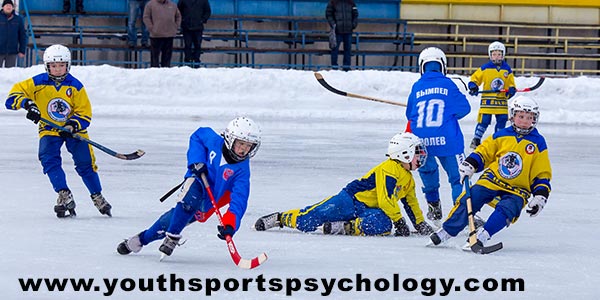
Using Your Mental Game For a Competitive Edge
An athlete told us recently, “I am pretty much doing everything wrong from a mental perspective and just beginning to work on understanding better ways to think.”
Athletes of all ages struggle with mental game challenges. They need to understand that mental game problems lead to lower performance. Kids will feel lower confidence, anxiety and frustration, and will be distracted if they struggle with staying mentally tough. Such problems can set up a negative cycle.
Here’s what other athletes have told us about their mental game:
- “Mentally, I’m breaking down in games.”
- “I’m not sure what I need to work on mentally.”
- “I don’t know how to fix these mental areas of my game.”
First of all, it’s important for young athletes to recognize how their mental game affects performance. It’s even better if they can identify what causes mental game breakdowns.
Awareness is key to making changes. Once kids are more aware of what stirs up issues such as lack of focus and lowered confidence, they can work on their mental toughness.
Sometimes kids say they don’t know what to work on mentally. They may struggle with confidence, managing their emotions, staying cool under pressure, staying focused and overcoming adversity.
Kids need to focus on improving one mental skill at a time.
At the same time, they need to think of mental game training as an effort that allows them to build skills, similar to physical conditioning. It’s not about fixing problems; it’s about learning skills.
Kids can study mental game training, or they can work with a mental game coach to improve their performance. They should focus on boosting their mental game during practice, as well as during games.
Take It From Lebron
Lebron James is one of the best athletes and basketball players the world has ever seen. James says his high level of play is due to being mentally conditioned as much as being physically conditioned.
“For me, what gets lost in translation over time is that athletes forget that there’s more than just a physical side. At this point in my life, it’s not that I’ve recognized that the mental side is important — I knew that as a kid when I was younger, but now I’m at a point in my life where I’m able to tap into it and take advantage of it. And take advantage of the benefits because there’s only so much you can do with the physical. There’s only so far you can get with the physical side,” James said.
Don’t let young athletes forget that sports involves both physical and mental training. Like James, they should consider tapping into their mental game training and reaping its many benefits.
Related Articles on Youth Sports:
- The Link Between Sports Kids’ Mental Game and Mental Health
- How Sports Kids’ Mental Game Affects College Recruitment
- This Pro’s Mental Game Helped Her Overcome Physical Limitations
*Subscribe to The Sports Psychology Podcast on iTunes
*Subscribe to The Sports Psychology Podcast on Spotify
The Composed Sports Kid

“The Composed Sports Kid” audio and workbook digital download program for young athletes and their parents or coach helps kids cope with frustration and anger in sports. Help your sports kids learn how to manage expectations and let go of mistakes so they can keep their head in the game.
The Composed Sports Kid system is really two programs in one–one program to train parents and coaches how to help their kids practice composure, and one program that teaches young athletes–ages 6 to 13–how to improve composure, let go of mistakes quickly, have more self-acceptance, and thus enjoy sports more!
